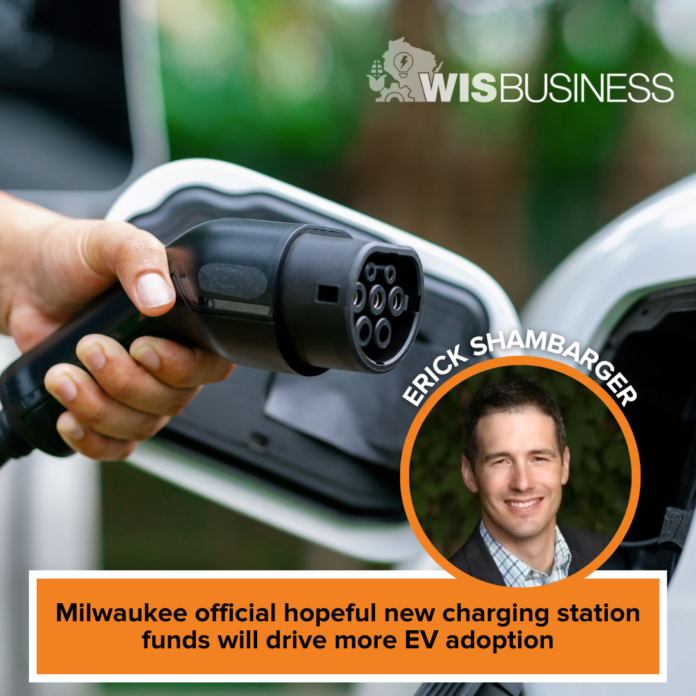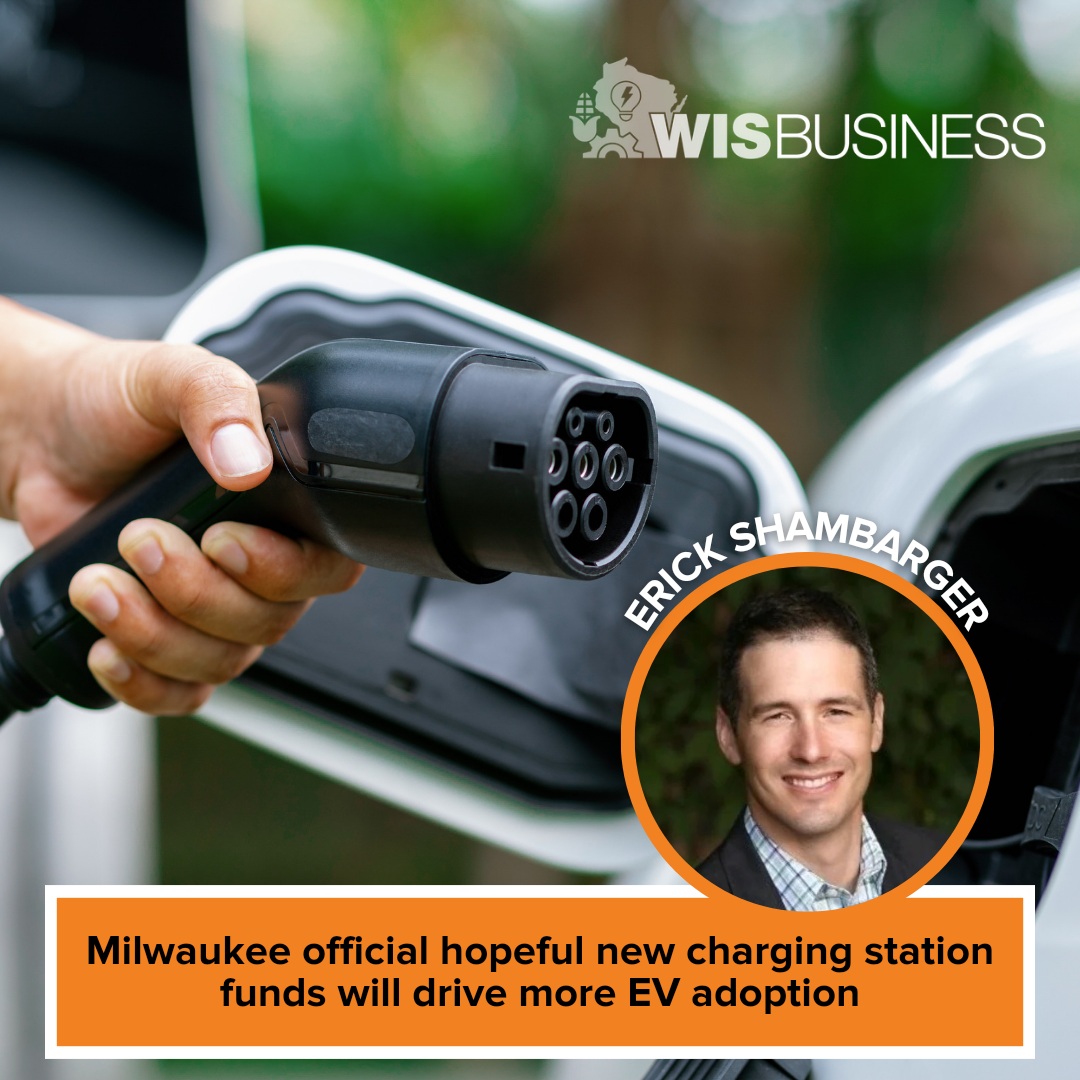
The head of Milwaukee’s Environmental Collaboration Office is confident that new federal funding for electric vehicle charging infrastructure will give citizens more confidence in purchasing electric vehicles in the coming years.
Milwaukee will receive nearly $15 million from the U.S. Department of Transportation’s Federal Highway Administration to install electric vehicle charging stations at 53 locations across the city, the agency announced this week.
In an interview yesterday, ECO Director Erick Shambarger said the city is “behind the curve on electric vehicle charging,” but the new funds would help build a network of publicly accessible charging stations. Under the city’s plans for the project, each site would have at least four charging stations, which would mean hundreds of additional options for electric vehicle owners.
The greater Milwaukee area, including Waukesha and West Allis, currently has 495 charging stations, according to online electric vehicle resource PlugShare.
Shambarger highlighted the environmental benefits of these vehicles, pointing out that they have a more positive impact on local air quality and the overall climate than conventional gasoline vehicles.
“We’re really excited about it and hope it really moves Milwaukee forward,” he said, adding that transportation electrification is one of the 10 key elements of the Milwaukee Climate and Equity Plan. “It’s just exciting to see the most important parts of that plan become a reality with the federal funding that’s now available.”
The grant amounts were announced this week – including $13.2 million for Dane County, the only other recipient in Wisconsin. Shambarger points out that the city government has not yet received the official grant notice and the timeline for implementation is not yet clear.
“I’m sure there’s a lot of administrative work to do, plus we probably intend to go through a process to determine the locations and a process to hire a private company to help install, build, manage and operate the stations,” he told WisBusiness.com. “I can’t imagine people will see stations built with this funding before 2026. I hope it’s sooner.”
He pointed out that the city would not only have to select a partner company for the installation, but would also have to make agreements with all the locations where the chargers would be installed.
Shambarger said ECO envisioned a public-private partnership with a company large enough to design, build, finance, operate and maintain the electric vehicle charging stations, bringing in subcontractors for the actual installation. He expects some of the stations to be built in public places, such as public libraries or other places where residents congregate.
“I am sure there is enough money here to distribute in the community,” he said.
He also noted that the project includes a workforce plan, so each partner must work with the city to ensure training programs are in place for the workers involved. And at least 40% of the charging stations will be built in disadvantaged areas, he said, citing the project’s “strong equity component.”
Still, he noted that more work remains to be done in selecting the exact locations for the charging stations, adding, “It was admittedly a bit of a rushed process” to choose the sites mentioned in the original application. The city was not selected for funding in the first round of applications last year, he said, but was later invited to reapply with the same application.
“I think we also need to revisit the sites and probably incorporate a little more public participation and some additional planning work,” he said.
He pointed out that any private developers brought in for the project would also have to make a matching contribution to the federal funds and that the fees paid by users of the charging stations would help the companies recoup their investments.
Dane County, meanwhile, will use its own funds to install 92 public electric vehicle charging stations with a total of 368 outlets, with a focus on “densely populated urban and suburban areas, as well as rural areas.” The county wants to fill gaps in charging station availability, the funding announcement said. There are currently 407 electric vehicle charging stations in the Madison metropolitan area, according to PlugShare.
Dane County Executive Jamie Kuhn said in a statement about the funding that the award is “great news” as it will help expand access to electric vehicles in the region.
“Expanding electric vehicle charging infrastructure will help Dane County continue to lead the way in sustainability efforts that help combat climate change,” Kuhn said.
See the full list of awards.

